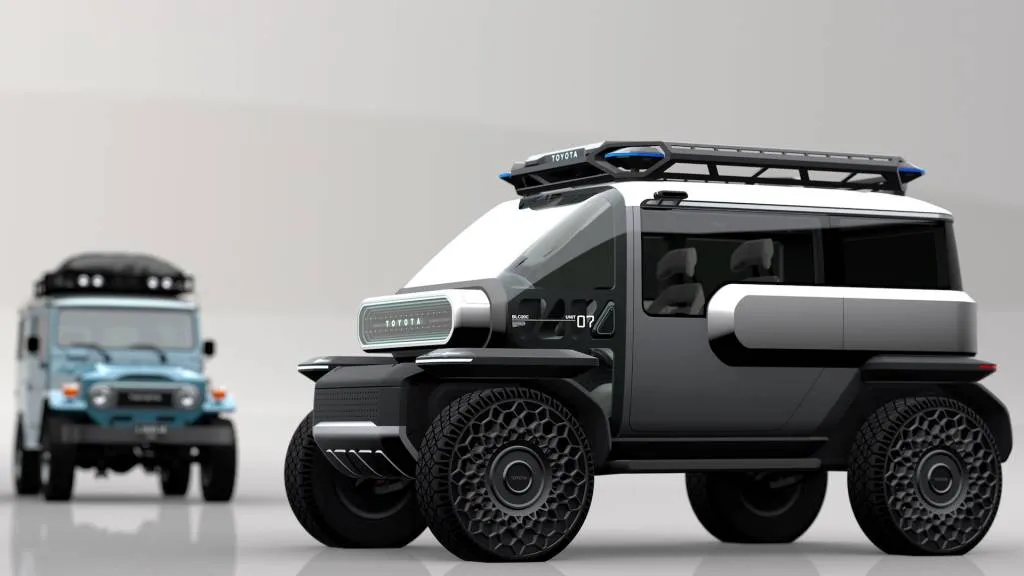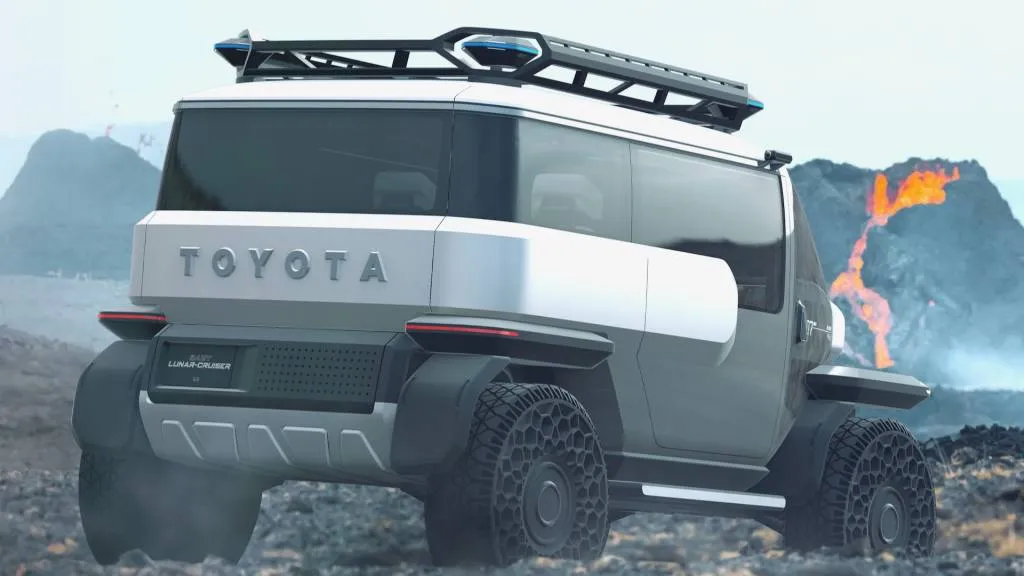Toyota recently unveiled an EV concept that blends styling elements from classic Land Cruiser off-roaders with those of the automaker’s proposed lunar rover.
Dubbed the Baby Lunar Cruiser, the concept was created to celebrate 50 years of CALTY, Toyota’s California design studio, according to a press release from the automaker. In addition to numerous concept cars, CALTY has designed production models ranging from the 1978 Toyota Celica to the 2024 Toyota Tacoma pickup.

Toyota Baby Lunar Cruiser concept
The new concept draws inspiration from the original FJ40 Land Cruiser and the extraterrestrial Lunar Cruiser being developed by Toyota in partnership with the Japanese Aerospace Exploration Agency (JAXA), according to Toyota. Announced in 2020, and previewed by in 2019 by a six-wheeled hydrogen fuel-cell concept, the Lunar Cruiser is expected to launch on an actual lunar mission by the end of the decade.
The Baby Lunar Cruiser borrows some of the general shape of the 2019 lunar rover concept, but with a cab-rearward silhouette and prominent grille with “Toyota” script that recall the terrestrial Land Cruiser. It’s powered by in-wheel motors controlled by dual joysticks and features airless tires for operation in the vacuum of space, according to Toyota.
While it’s just a design study, it wouldn’t be surprising if some styling elements from the Baby Lunar Cruiser made their way onto future earthbound electric SUVs. It doesn’t seem like too much of a stretch to incorporate some of these elements into a production version of the Toyota Compact Cruiser EV—another electric concept inspired by the FJ40 Land Cruiser.

Toyota Baby Lunar Cruiser concept
Toyota has confirmed a three-row electric SUV for U.S. production, as well as an efficiency-focused flagship. But it may be saving a new crop of more production-bound EV concepts for the upcoming Tokyo show later this month.
A few years ago General Motors did a fun comparison between the Chevy Bolt EV and the original 1971 Lunar Rover, which was electric, and was developed by the Detroit automaker. Might Toyota be working up to its own production EV to compare?







